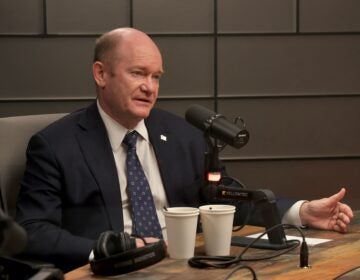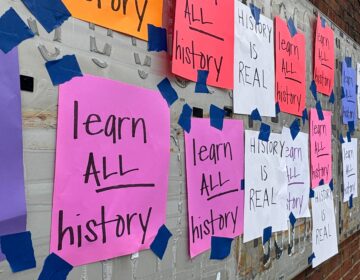A summer beset by crisis, or simply drenched in media?
ListenUkraine. ISIS. Beheadings. Ebola. Gaza. Ferguson.
This seems a particularly grim time in our world.
Yet is it, really? Is our current daily dose of woe really any worse than any other time in history?
Could it be we’re just more aware – more bombarded and anxious – thanks to the Twitter-peppered, video-drenched, shrunken world in which we live?
Seems to me, any one day of World War II, anywhere from Dec. 6, 1941, to V-J Day, contained far more horror, pain and cause for anxiety than any day of 2014.
But back then, the news of it all tended to arrive more slowly, by headline and newsreel, not breathless tweet and gut-churning video.
Today, the vivid newsbreak launches the 24-7 reaction cycle. Political and media actors thunder and posture, demanding that the president, the Pentagon, somebody make the problem go away – right now.
You have to wonder: If we, rather than the greatest generation, had to live through a true existential crisis like a world war, would we just lose our minds?
We are both blessed and cursed to get more information more quickly than any group of people ever has. It seems to have thrown out of whack our sense of proportion, of how long it takes for things to play out, of how much we can really affect events halfway around a world we don’t really understand.
(I understand that my words here sound a bit like the spin President Obama has put on his wan leadership this summer. But I’m not defending his recent performance. His line that his team is still working on a strategy for dealing with ISIS was just terrible political stagecraft. Our previous president surely did show the perils of blundering ahead with cocksure, simplistic strategies. Our current one tends to overdo the opposite attitude, the sober, wiser-than-thou watchful waiting. Now, back to the rest of us, who weren’t elected to monitor and respond to all manner of global mischief …)
While we flip out over distant crises, we do next to nothing about a real crisis that is both existential and demands personal action. I speak of global warming.
It’s odd. All around the globe, humans routinely do deeds as horrific as the ISIS barbarities. But when these happen in a place like Rwanda, we shrug. In the Middle East, though, we are perpetually riveted, perpetually deluded that we can bend events to our will. The difference, of course, is oil.
How many of the people clamoring for a decisive response to ISIS are among the 25 percent of Americans who still deny that our planet is warming and that our lust to consume hydrocarbons is partially to blame?
Curbing that lust would both reduce the chronic threats from groups like ISIS and the possibly cataclysmic threats from the warming of our planet.
Slowing the pace of warning should really be our No. 1 national project.
Instead, to calm our anxieties, we rely on drone attacks.
We have very smart phones, but they don’t seem to be making us all that much smarter.
WHYY is your source for fact-based, in-depth journalism and information. As a nonprofit organization, we rely on financial support from readers like you. Please give today.














